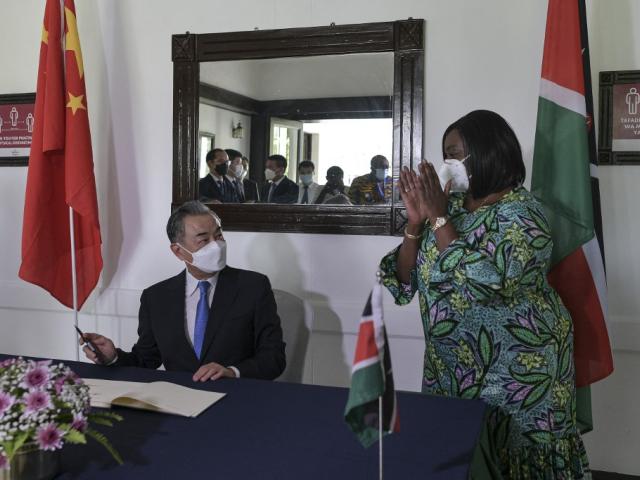South Africa’s state-owned electricity utility, Eskom, often makes headlines for the wrong reasons. It’s been struggling to keep the country’s lights on, and faces allegations of corruption, mismanagement and looting.
In the 2019 medium term budget policy statement, Finance minister Tito Mboweni had some tough words for the power provider, saying it was significantly weighing down the public purse.
It’s been widely reported that Eskom is battling to recover debt from electricity users. The company often names and shames municipalities it says owe billions.
Most notable is the township of Soweto, also known as region D of the City of Johannesburg metropolitan municipality. Eskom has said the township owes R18 billion in outstanding electricity payments, a figure widely reported in the media.
Recently, some Soweto residents have questioned this amount. They plan to take Eskom to court to force it to explain how the debt was calculated.
Do Eskom’s financials show that Soweto owes R18 billion? We took a look.
Historic ‘culture of non-payment’
Soweto has a long history of not paying for electricity.
According to Roger Lilley, an energy analyst and author at energy and technology news website EE publishers, Soweto residents first used the non-payment of services as a weapon against the apartheid government.
Lilley argues that that this “culture of non-payment... has now been passed on to younger generations”.
But the Soweto Electricity Crisis Committee, an anti-privatisation forum, has argued that many residents are still unable to afford electricity and water.
Debt written off in 2003
Soweto became part of the Johannesburg municipality in 2000. In 2003 the township’s electricity bill of about R1.3 billion was written off. This was “in an effort to start from a clean slate”, said former Eskom spokesperson Khulu Phasiwe.
Ted Blom, an energy expert who worked at Eskom in the 1980s and again in the 2000s, believes the billing problem deepened when Eskom took over Soweto’s billing from the Johannesburg municipality in the early 2000s.
“If they followed good accounting practices, they should have done a full audit on every meter in Soweto, but they didn’t do that,” said Blom.
“Even to this day, 30 years later, there are still places where there is only one meter for a whole block of six or 10 houses.”
‘Tens of thousands of residential customers’ owe money
Eskom says it faces two problems with debt collection across South Africa.
The first is collecting the debt owed by a few hundred municipalities. It says this debt has “grown exponentially over the past few years”.
The other is that from “small power users”, particularly in Soweto. It claims “tens of thousands of residential customers” there owe it money, which is “difficult to manage and collect”. But it adds that due its historical nature, residential debt in Soweto has been growing at a slower rate than that of municipals.
Amounts not in reports
In Eskom’s July 2019 group annual results presentation, it claimed that Soweto’s small power user debt increased from R15 billion in 2018 to R18 billion in 2019. But these amounts are not reflected in its integrated reports.
Eskom’s latest integrated report shows that Soweto’s small power users owed the power utility R6 billion in 2018, excluding interest. This rose to R12.4 billion when interest was included.
The most recent figures for 2019 show that the amount owed has increased to R6.4 billion, excluding interest. With interest, it’s R13.6 billion.
| Amount owed by Soweto’s small power users | ||
| Year | Without interest | With interest |
| 2018 | R6 billion | R12.4 billion |
| 2019 | R6.4 billion | R13.6 billion |
‘Compliant’ amounts
So where does the widely reported – and tweeted – amount of R18 billion come from?
Calib Cassim, Eskom’s chief financial officer, told Africa Check that the R13.6 billion from the integrated report “includes only those amounts recognised to be compliant with all reporting requirements of International Financial Reporting Standards (IFRS)”.
The IFRS Foundation is a non-profit organisation responsible for developing global accounting standards.
Kirstina Reitan, the foundation’s head of communications, told Africa Check it was possible, under certain circumstances, for debts owed to a company to not necessarily be compliant with the reporting standards.
‘Gone, but legally still owed’
Trevor Derwin is an IFRS expert and a South African member of the foundation’s advisory council. He confirmed that Eskom may not be able to record all the debt it is owed.
Derwin said Eskom might be legally entitled to charge interest on debt, but couldn’t record it because of the uncertainty about whether the debt could be collected.
“For accounting or reporting purposes Eskom may have said there is a very slim chance of recovering it,” he explained. “So from an accounting perspective, it's gone, but legally it’s still owed.”
Derwin told Africa Check it would be difficult to find out whether Eskom was owed more than the amounts shown in its integrated reports.
He said that other than calculating debt and interest from the actual invoices issued, one may never be able to verify the full amount owed to the utility.
In his budget policy October speech, Finance minister Mboweni urged Eskom to be more efficient, including in “cash management”.
Further reading:
https://africacheck.org/reports/eskom-and-the-viral-infographic-do-the-numbers-add-up/
https://africacheck.org/fbcheck/no-china-exim-bank-hasnt-taken-absolute-control-of-eskom-power-facility-in-south-africa/



Add new comment